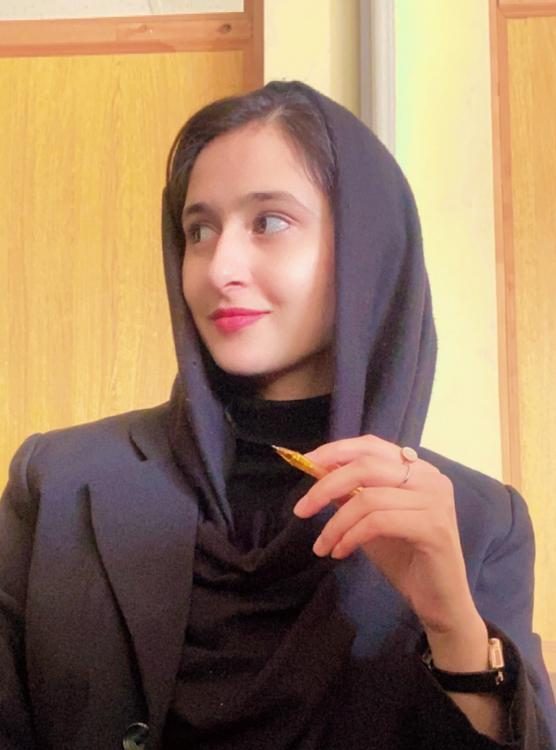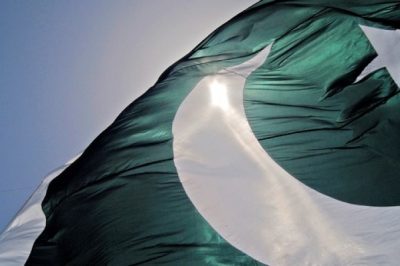History has taught us that no state could ever prosper in a true sense without considering its weaknesses, diagnosing the fault lines in its political choices, and ultimately working to eradicate them. Making political blunders at some point is normal since state policies are made by humans, not programmed robots, but not realizing them as mistakes is indeed a grave problem.
In Pakistan’s history, we must confess that we made many political decisions that we should not have. Starting from Cold War alliance-making policies to the war on terror, some decisions could have been avoided. But, in politics, there is no use in crying over the spilled milk; what rational decision-makers do is learn from their pasts and make their future better.
Pakistan can do the same. What Pakistan can do in the present time to make its future bright is to chase long-term national interests. I call them “long-term national interests” because we witnessed some economic prosperity during the Cold War, especially under dictatorship, but that faded away too soon.
This is not how crucial political policies should be made. In International Relations, where anarchy prevails, it is necessary to be very thoughtful of your domestic upheaval, or lawlessness could devour you.
Before suggesting what we should go for this time, it is essential to see where we went wrong in the past to learn from our past mistakes. The Cold War policies, where we joined one alliance at the cost of the other, were what is considered a huge political blunder.
We could have remained neutral and had better ties with both the superpowers. Many political thinkers gave their opinion of the Pak-USSR alliance based on the simple logic that, being an immediate neighbor, the former USSR could have been more advantageous for Pakistan. Moreover, Russia could have been economically beneficial as well.
In 1972, Pakistani Prime Minster Zulfikar Ali Bhutto was invited to Moscow. A steel mill was also built in Pakistan with Soviet assistance. The brief détente came to an end after the 1977 military coup by Muhammad Zia-ul-Haq. During the Soviet-Afghan War, Zia backed the Afghan mujahideen, who fought a proxy war against the Soviet Army in Afghanistan that made matters worse.
From the above-mentioned brief history of alliance formation, we can learn valuable lessons about which policies should be avoided and which should be adopted this time. Recently, the Iran-Israel skirmishes have been a hot topic in international development. Many refer to it as a possible reason leading to World War III.
Also Read: The role of artificial intelligence in shaping our future
Seeing the entire scenario from Pakistan’s perspective, our government is being approached from both sides directly or indirectly. Irani officials, after Iran’s launch of more than 300 missiles on Israeli territory in reaction to Israel’s attack on Iran’s embassy in Damascus, reached out to Pakistan today (Monday) to have an official meet-up with Pakistani officials.
Saudi Arabia, on the other hand, is also showing interests in making economic ties with Pakistan. Both the states, Saudi Arabia and Iran, are archrival. There is a vast ideological chasm between both states created by sectarianism. Sunni Saudi has been tilted towards the USA and Iran, and China is supporting its proxies. So, the big picture also shows what their priorities are.
For Pakistan, engaging with both states can be highly beneficial if the relations are confined to the economic domain. In his article titled “Shifting gears,” published in Dawn News, Khurram Hussain appreciates the diplomatic meeting of the Saudi delegation with Pakistani officials.
He also says, “Foreign investors are beginning to look again at Pakistani prospects.” The Saudi investment package, shared by the government, will be $5 billion, which is a considerable amount for our deteriorating economy. Hussain also reminds us that our historical economic priorities were not as advantageous as they should have been; by pointing out the historical mistake, he says, “Geopolitics trumped economics.”
Moving towards the Pak-Iran ties, Iran has considerable significance for Pakistan and vice versa. Iran, being a neighboring state, does influence Pakistan in many ways. Economically, Iran, being a gas-rich state, has much to offer Pakistan.
Iran and Pakistan agreed to construct a gas pipeline where Iran was supposed to provide gas to Pakistan. Although pipeline construction began in 2011, the Pakistani government did not officially approve its work until 2024. Recently, efforts to revive the Iran-Pak gas pipeline have finally been made. According to the reports, Pakistan has completed an 80 km stretch of the pipeline. The process should be continued till the energy needs of the Pakistani citizens are fulfilled.
Pakistani government could have some reservations regarding the reaction from the world hegemons. China was already brokering between the KSA and Iran before the Israel-Palestine episode started. China will approve of the Pak-Iran relations.
As far as the USA is concerned, Pakistan has a history of being influenced by real as well as perceived threats. Pervez Musharraf historically gave the justification for indulging in America’s War on Terror by saying that the Bush Administration would bomb Pakistan back to the Stone Age if Pakistan didn’t take part in the war on terror. Was the threat so substantial that we had to put our state at risk? This is an open question.
Many believe that we could have avoided that, but we cannot go back to the past; all we can do is mend our ways in the present. Although there is news that the U.S. is not happy with the Pak-Iran gas pipeline project for obvious reasons, we really have to put our national interests at the top of our priority list.
Pakistani government stated in 2013 that it does not need a waiver from U.S. sanctions to build its portion of a pipeline to import natural gas from Iran. We must stick to that statement and shed all the perceived threats of external subjugation. We really need to make long-term economic policies for the survival and development of this state. In conclusion, Pakistan must exercise its sovereignty and make rational foreign and domestic policy decisions so that we can move forward in real terms.
** The opinions expressed in this article are solely those of the author and do not reflect the views or position of World Affairs Insider. The organization neither endorses nor takes responsibility for the content of this article and its accuracy.

The writer has done bachelors studies in international relations from university of Peshawar and is currently working as a research assistant in Public Relation services.








